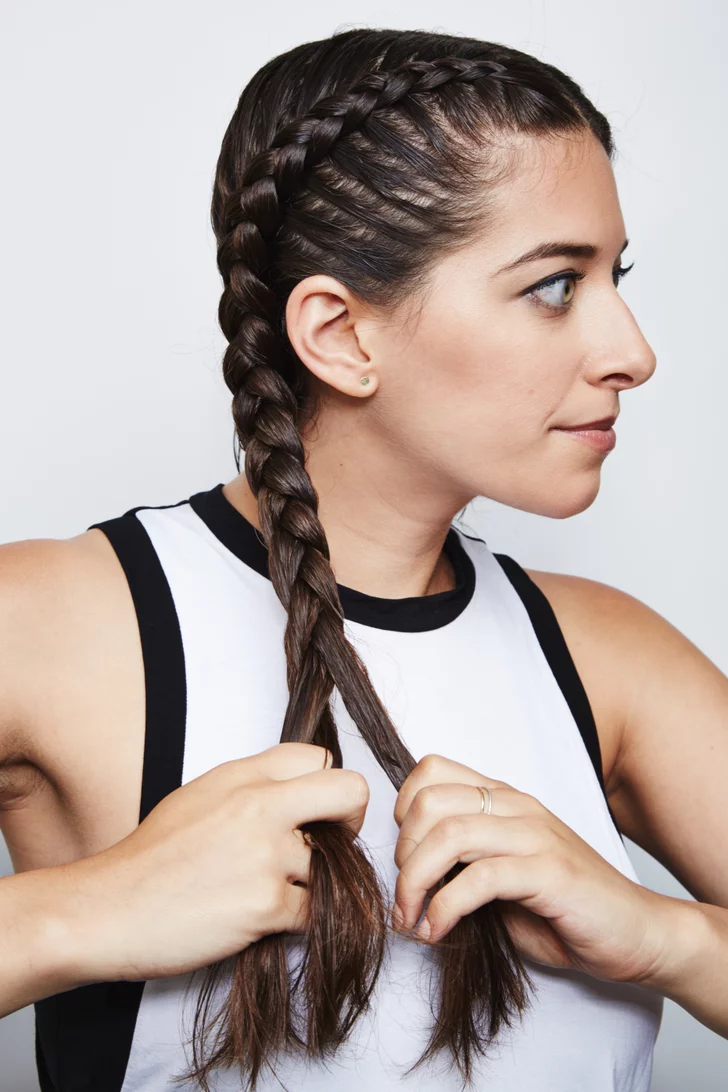
How Often Should You Wash Your Hair
How Often Should You Really Wash Your Hair?
We’ve all been taught that washing your hair daily is a strict no-no. But is it really that bad? And how often should you actually shampoo to keep your locks looking their best? How often should you wash your hair?Let’s cut through the myths and explore the truth about hair washing.
There’s No Universal Rule
The first thing to understand? There’s no definitive rule that works for everyone. The “right” shampoo frequency depends on many factors unique to you. Things like your hair type, lifestyle, styling practices, and even the climate can all influence how often you need to wash up.
Some people get away with once-a-week washings. Others find their strands look greasy and limp if they don’t shampoo every couple of days. Finding your Goldilocks number takes experimentation.
Why You Shouldn’t Wash Too Often
Before we get into timing recommendations, let’s discuss why over-washing is generally discouraged. When you shampoo, you’re stripping away your hair’s natural oils (called sebum). These oils condition your hair and keep it looking smooth and healthy.
Washing too frequently can leave hair dry, brittle, and prone to breakage over time. It can also trigger an overproduction of sebum as your scalp tries to compensate. Hello, greasy locks!
Additionally, most shampoos contain harsh sulfates that irritate the scalp. This can cause flaking, itchiness, and other skin issues with frequent use.
So washing daily (or multiple times per day) is typically not advisable for most hair types and textures. But you can wash too infrequently as well…
Why You Can’t Space It Out Too Much
On the flip side, going too long between washings allows oils, sweat, dirt, and product buildup to accumulate excessively. Sebum can clog follicles, making hair look limp and lifeless. Severe buildup may even inhibit growth over time.
Excess oils attract dust, pollen, and other airborne particles that dull hair’s vibrancy too. And if you work out regularly, sweat can make strands smelly in just a day or two.
Spacing out shampoos for a week or longer often leads to lank, greasy strands that lack volume and movement. It’s hard for styling products to work their magic too.
So while over-washing zaps moisture, under-washing leads to an oily, weighed-down mess as well. Finding that happy medium is key.
Guidelines By Hair Type
So how often should you actually lather up? Here are some general guidelines based on hair texture:
Straight, Fine Hair
Tends to look greasy fastest. Wash every other day, or every 2 days.
Wavy or Curly Hair
Softer texture helps strands stay fresh longer. Wash every 3-4 days.
Coarse, Coily Hair
Extremely dry. Can often go 5-7 days between washings.
Of course, these are just starting points. Your individual hair may require more or less frequent washing based on its specific characteristics and needs.
Other Factors That Impact Frequency
Beyond just hair type, a few other variables can influence how quickly your locks get oily or dirty:
Exercise
If you’re an avid gym-goer or just sweat a lot, you’ll likely need to wash more often to rinse away odor and grime. Every 1-2 days may be needed.
Styling Products
Gels, pomades, dry shampoos and other heavy products can build up faster. Shampoo every 2-3 days to prevent dulling buildup if using lots of products.
Environment
Hot, humid climates tend to make hair greasier faster. You may need to wash every other day. Dry heat allows you to extend washings.
Sweat & Oil Production
We all produce oil at different rates. If your scalp is super oily, daily or every-other-day shampooing may be required.
Hair Length
Long hair shows oil faster than shorter styles as the sebum has more surface area to travel down the hair shaft.

Signs It’s Time To Shampoo
Still not sure when your hair needs a refresh? Look for these telltale signs:
Stringy or Limp Appearance
When hair starts looking weighed down and loses its bounce and volume, it probably needs a wash.
Visible Oil or Grease
If you can physically see oil buildup concentrated around your roots and scalp, it’s shampoo time.
Flakes or Itchiness
When dead skin cells and product start accumulating on the scalp, it can cause irritation and flakes. Wash to start fresh.
Strong Odors
Let your nose guide you. If your hair is starting to smell musty, stale, or just “off,” hit the shower and suds up.
Don’t Forget The Occasional Reset
Even if you find your perfect routine, it’s still smart to do an occasional reset wash. Every 4-6 weeks, use a clarifying or detox shampoo without sulfates. This gives you a clean slate by dissolving any stubborn product, oil, or mineral buildup that’s accumulated.
Just don’t make these ultra-cleansing shampoos part of your regular routine, as they can strip too much moisture. Use them sparingly as a haircare reset button.

Can You Train Your Hair?
You may have heard you can “train” your hair to get greasier or cleaner on a set schedule by sticking to the same washing pattern. There’s some truth to this, but it has limits.
If you always wash every 3 days for instance, your scalp may start regulating oil production around that timeline after several consistent weeks. But this training effect is pretty minor and can be easily thrown off by hormones, stress, and other factors.
It’s generally better to pay attention to your hair’s actual condition rather than sticking to a rigid schedule. If it looks and feels clean, you can skip a shampoo. If it seems greasy and weighed down, wash it – regardless of what day it is.
Listen To Your Hair
At the end of the day, there’s no one-size-fits-all answer. The “right” shampoo frequency is unique to your individual hair and circumstances. It may even change over time due to age, season, or other lifestyle factors.
Instead of following rigid rules, it’s best to simply tune into your hair. Inspect it regularly and become familiar with how it behaves. Wash it when it truly needs it based on greasiness, odor, and overall looks and feel.
Be open to adjusting your wash schedule as seasons change or your hair’s needs evolve. And don’t be afraid to experiment to find that Goldilocks zone – not too often, but not too infrequent either.
With a little self-awareness and trial-and-error, you’ll easily discover the perfect routine to keep your specific strands soft, shiny and beautiful. Listen to your hair, and wash accordingly!



